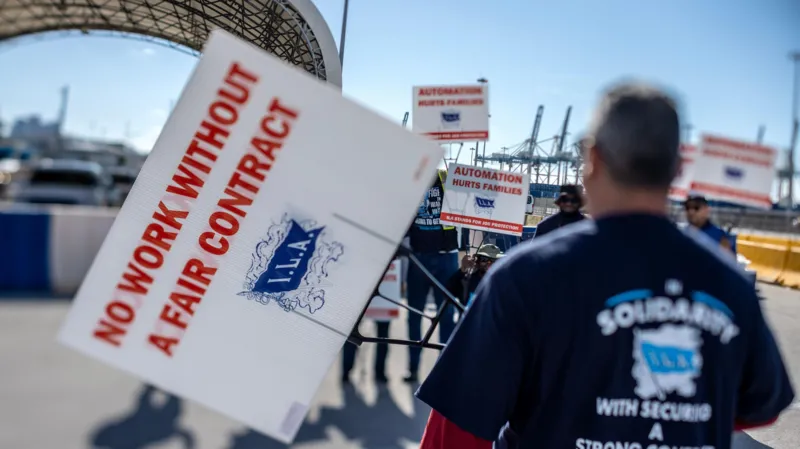The leader of the dockworkers’ union, Harold Daggett, said that major US ports will stay closed until workers’ pay demands are met.
He made this statement while on a picket line in New Jersey as thousands of workers on the east and gulf coasts went on strike to get a better deal. Daggett said, “We’re going to win this fight, or the ports will never open again.” He added, “I’m not playing games.”
Businesses are worried that the strike might last a long time, which could disrupt global trade and hurt the US economy. US President Joe Biden has not used his power to reopen the ports yet, even though many large companies are asking him to.
Biden said it’s only fair that workers, who kept the ports open during the pandemic, should get a fair wage increase. He added, “Now is not the time for shipping companies to avoid negotiating while making huge profits.”
The strike is the first for the International Longshoremen’s Association (ILA) since 1977. It has stopped container traffic at 14 of the busiest US ports, including New York, Georgia, and Texas. These ports handle over a third of the country’s imports and exports. Experts warn that this could lead to delays in the delivery of goods, affecting both businesses and consumers.
The ILA’s last contract expired recently, and dockworkers were earning a base hourly wage of $20-$39, along with other benefits. The United States Maritime Alliance (USMX), representing shipping companies and port associations, offered to increase pay by nearly 50%, improve retirement benefits, and enhance healthcare. But the union has rejected this offer, saying it’s not enough.
Daggett said the companies are making billions of dollars and don’t want to share the profits with the workers. He vowed to keep the ports closed until companies agreed to a $5 raise for each year of the new contract and provided protections against automation.
If the strike continues for a long time, prices could go up, and shortages might occur across the country. Shipping delays are also expected to have a global impact.
Ships are already waiting outside the ports, unsure of what will happen next, according to experts like Anne-Sophie Fribourg from the freight forwarding company Zencargo.
Hamid Moghadam, the head of Prologis, one of the world’s largest warehouse companies, told the BBC that while the strike wasn’t a surprise, it would still hurt the economy.
He said the strike would affect the flow of goods, which could lead to serious consequences.
Many businesses, like Danny Reynolds’ clothing store in Indiana, are already feeling the impact. He has yet to receive 25% of his inventory and is concerned about delayed shipments, especially for special-order bridal gowns.
Reynolds said he’s hoping the strike ends soon because it could cause severe damage to the economy if it continues.
Daggett and his union are determined to keep fighting for better pay and benefits. Meanwhile, the USMX and businesses are hoping for a resolution to avoid more disruption.
As of now, there’s no clear end in sight, and both sides remain far apart in negotiations.
According to the BBC, the effects of this strike are likely to be felt worldwide if it drags on much longer.
https://www.bbc.com/news/articles/c78d442v3e6o

